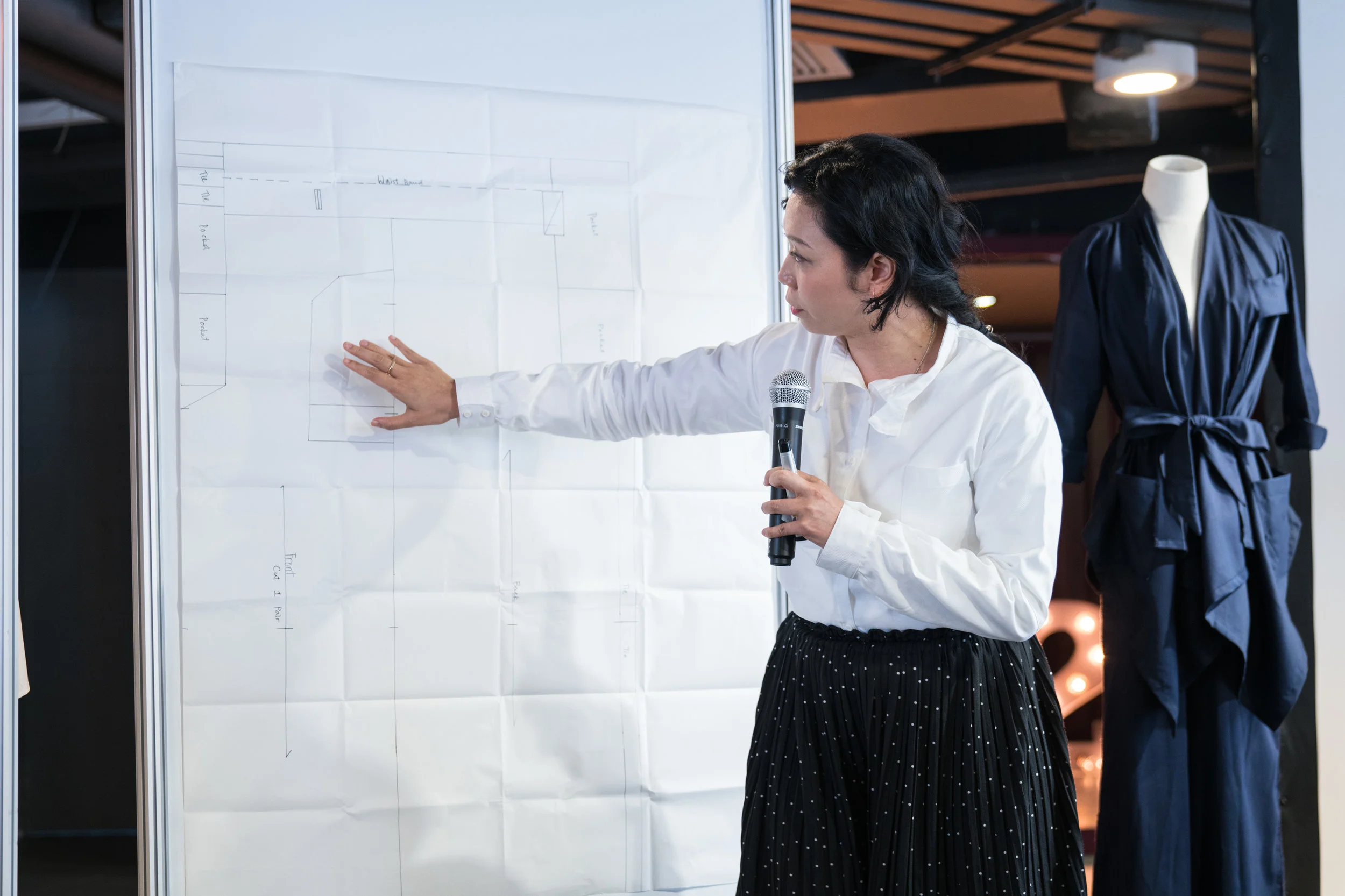Written by Bel Jacobs
Contributors: Hannah Lane, Kay Liu, Mia Shu
In 2005, Dame Ellen McArthur became the fastest solo sailor to circumnavigate the globe. During her journey, she realised just how important her resources were to survival: “Suddenly I realised our global economy is no different,” she told sustainable consultants McKinsey.
Today, Dame Ellen is one of the world’s most high profile proponents of a circular economy, in which waste is no longer discarded but becomes, instead, another precious resource.
The discussion around the principles and practices of the circular economy is growing - precisely the principles on which Redress has been working since its foundation in 2007. Through the Redress Design Award, Redress has reached thousands of emerging fashion designers, raising the awareness of sustainable alternatives in the industry.
But recent research has reinforced that much more needs to be done, not least within educational institutes. Over the past year for the ‘Different Ways of Doing’ report, Redress with Dr. Alana M James at Heriot-Watt University and Dr. Alison Gwilt at Sheffield Hallam University have been digging deeper into just why fashion curriculums on the whole are failing to address the most pressing needs facing the planet today.
There is no lack of interest. In a survey amongst fashion designers and students in Asia and Europe conducted in 2017 by Redress, 98 per cent out of 200 respondents thought sustainable fashion education is important and 71 per cent agreed that sustainable education will enable designers to participate in providing solutions for environmental problems.
And that interest is mirrored within an industry that is increasingly engaging with issues of sustainability in new and exciting ways. Consider sportswear giant Nike, which has committed to reductions in energy, waste, water use and emissions - and towards becoming a zero waste company by 2020. And consider H&M who have just committed to using 100 per cent sustainable fabrics by 2030.
If initiatives like these continue to increase in number, as they are showing every sign of doing, the fashion industry will need students who are primed for a brave new world of design and sustainability.
However, according to a Business of Fashion 2015 report, 44 per cent of students are satisfied with teaching on sustainability in the curriculum paired with findings from Redress that showed only 13 per cent of respondents had actually received any formal sustainability education through their institutions.
The conditions for change are complex, multi-layered and systemic. The ‘Different Ways of Doing’ report explores the experience of fashion educators to map the current provision of sustainable teaching within fashion in higher education and concludes with strategies that will help drive this agenda forward in the near future.
On first evidence, while there was a will, there was rarely a way. Teachers struggled with a lack of resources and information, both on design-led approaches to sustainability and on the issues themselves, along with a lack of support from faculties.
Ways in which to include sustainability - a complex, continually shifting approach - within current curriculums also proved challenging, leaving teachers feeling isolated and forced to self-learning.
Even more difficult to counter are entrenched notions about sustainability as a barrier to creativity. In systems which may regard the designer as artist, even potential international icon, the complex practices of sustainability and the circular economy - such as sourcing waste fibres or working with fragments - can be regarded as obstructions to good design, restricting and curtailing creativity.
And yet, research has identified that the design stage is imperative in driving change. Increasingly, the vision of the designer as a critical link in the chain of sustainable production is becoming influential in an alternative narrative. It is a narrative in which sustainability is not a barrier to creativity, but a condition of rich, exciting potential.
Change is happening. A handful of institutes are leading the way, teaming up with industry pioneers to create courses that extend the technical and practical skills of their students. Since 2014, for example, luxury powerhouse Kering Group and The London College of Fashion (LCF) have worked together through awards and courses to grow the contribution fashion can make to the planet.
The relationship between Kering Group and LCF demonstrates just what can be achieved when industry meets new talent; more collaborations need to take place as examples of how industry can benefit from pushing boundaries and imagination when engaging with sustainability.
At the same time, conscious (and unconscious) educators must be supported and encouraged to enable more rapid change - and this is where new business initiatives and NGOs such as Redress and the Ethical Fashion Forum can step in.
Redress’ work serves to educate interested parties in the urgency and practices of sustainable fashion. As the industry moves towards a circular economy, students, teachers and designers alike need to be ready for what’s coming: the shift towards new, circular business models and the need to embrace the new ways of doing fashion that lie on the horizon.
In response to this need, last year, Redress launched the Sustainable Fashion Educator Pack. This comprises of ready to deliver classes in sustainable fashion specifically targeted at educators, covering the topics of a garment’s lifecycle, zero-waste, up-cycling and reconstruction, with new subjects already in the works for phase II. These teaching packs are free to use worldwide. So far the response has been overwhelmingly positive.
Nonetheless, one thing is clear – Redress, along with other like-minded organisations, know that they are only scratching the surface. The systems that support the current wasteful practices of the fashion industry are strong and deeply entrenched. As the Redress Design Award competition goes truly global in 2018, Redress has committed to ambitiously targeting an ever-widening community of educators and students alike. The battle for change continues...
A special thanks to education sponsors Crystal Group, The Mills, Lenzing and EcoTLC who have given valuable support to further develop the work of the Redress Design Award.
To request a copy of the Sustainable Fashion Educator Pack, visit:
All of Redress’ free learning materials can be accessed here:
This article originally appeared in the EcoChic Design Award 2017 Magazine.
The Redress Design Award was previously named the EcoChic Design Award




